Here's what you need to know about OnePlus' Warp Charge 65T and 50 Wireless
Warp Charge is one of the best fast charging standards available, and it now has 65W wired and 50W wireless charging.
OnePlus rolled out Dash Charge back in 2016 with the OnePlus 3 and 3T, with the 20W charging standard allowing devices like the OnePlus 6T to go from zero to 60% charge in just 35 minutes. Starting from the OnePlus 6T McLaren Edition, however, OnePlus has switched to the Warp Charge moniker while offering even faster charging speeds.
On the OnePlus 7T, OnePlus introduced an updated version of Warp Charge called Warp Charge 30T that's able to deliver a 30W charge for longer, allowing the phone to top up from zero to 70% in just 30 minutes. OnePlus significantly upgraded its charging tech last year with the OnePlus 8T, introducing Warp Charge 65. The charging tech allowed the phone to be fully charged in just 39 minutes.
In 2021, OnePlus is turbocharging the standard: Warp Charge 65T delivers the same 65W charge as last year, but because of added sensors within the OnePlus 9 Pro, the phone is able to sustain a higher voltage for longer, and in doing so it fully charges the battery in just 29 minutes — 10 minutes less than the OnePlus 8T.
With the OnePlus 9 series, OnePlus has also introduced 50W wireless charging. It unveiled 30W charging with the Warp Charge 30 Wireless standard last year, and this year's charger now delivers a 50W charge wirelessly.
While you'll find other fast charging standards on the best Android phones, the advantage with OnePlus' implementation is that it doesn't overheat your phone. That's because most of the charging circuitry is offloaded onto the wall unit. Warp Charge is based on OPPO's Super VOOC charging standard, and is different from the majority of quick charging options available today. Here's what you need to know about Warp Charge 65T and the latest Warp Charge 50 Wireless.
Here's how fast charging works
A standard smartphone battery is highly reactive, which is why phone companies have several safeguards built into the charging circuitry. Lithium-Ion batteries are able to take in more power initially, tapering out as the charge builds. It is on this principle that fast charging works.
Qualcomm uses high voltages, whereas OPPO pushes more amperage to the phone.
Qualcomm's Quick Charge technology delivers a higher voltage to the battery to expedite charging time. Quick Charge 4.0+ is fully compliant with the USB-C Power Delivery (PD) spec, and is 20% faster and up to 30% more efficient than Quick Charge 3.0. Qualcomm's power management algorithm called Intelligent Negotiation for Optimum Voltage (INOV) ensures better temperature regulation, along with safeguards to protect against overheating and overcharging.
Qualcomm claims that with its parallel charging technology, you'll be able to use your phone for five hours with just a five-minute charge. The chip vendor licenses the technology to third-party OEMs, but more and more brands are rolling out their own solutions. Samsung, for instance, switched to USB Power Delivery's Programmable Power Supply (PPS) spec starting with the Galaxy Note 10 series, offering 45W wired charging. In 2021, it switched back to a 25W charging solution on the Galaxy S21 that uses PPS.
Meanwhile, OPPO has its own fast charging solution dubbed SuperVOOC (Voltage Open Loop Multi-step Constant-Current Charging). The fast charging system is used in the likes of the the Find X3 Pro, Reno series, and other OPPO flagships. Starting with last year's Find X2 Pro, OPPO switched to a 65W fast charging solution, with the brand relying on a bi-cell configuration (there are two 2130mAh batteries in the phone) and delivering 10V over 6.5A. The result? You could charge the battery on the Find X2 Pro from zero to full in just 38 minutes.
OPPO licenses SuperVOOC to OnePlus, which is then rebranded to Warp Charge.
OPPO licenses SuperVOOC to OnePlus and Realme, with all three companies falling under the BBK umbrella. OnePlus' Warp Charge uses the same underlying tech, with the only difference being the branding and the distinctive red charging cable.
OPPO uses dedicated circuitry in the charger itself for heat management and dissipation, which is why you can only get the quoted charging speeds with its own wall plug. That's why on Warp Charge, you'll have to use the bundled wall charger or the car charger to get the full 65W charging speeds.
The key difference between SuperVOOC and Quick Charge is that while Qualcomm uses higher voltages to charge batteries, OPPO relies on delivering a higher amperage. For instance, Quick Charge 4.0 goes up to 6.5V at 3A, creating 19.5W, whereas Warp Charge delivers 10V at 6.5A to attain 65W. But because all the associated circuitry is in the wall unit, you'll get all the advantages of fast charging without any of the downsides (overheating).
A full charge in under 30 minutes
One of the main benefits of Warp Charge 65T is its ability to keep temperatures low while charging. The fast charging option allows you to watch videos or play games while the phone is charging, with no net drop in charging speeds. That isn't the case with Quick Charge, as the higher voltages invariably lead to the phone reverting to normal speeds to prevent overheating.
In fact, OnePlus is actively touting Warp Charge's efficacy in this area, stating that the charging standard will deliver up to a 50% charge in under minutes. With the screen off, Warp Charge 65T will be able to charge the battery in 29 minutes flat.
With Warp Charge, you don't have to worry about your phone overheating.
It takes more than twice as long to go from 50% to a full charge, and that's to prevent damage to the battery (and more importantly, you), with the wall charger limiting output after hitting 75% and going even lower after reaching 80%. The microcontroller unit inside the phone constantly monitors the charge level to determine the desired amperage to be delivered. This is a good thing, because it ensures that everything doesn't burn down when you plug your phone in overnight.
The main downside with Warp Charge 65T is that you need to use OnePlus-branded chargers to get the advertised speeds. That said, OPPO has licensed the technology to third-party vendors like Anker, so you could see compliant chargers very soon.
Another advantage with the Warp Charge 65 and 65T standard is that the wall plug itself works over USB PD at up to 45W, allowing you the ability to charge other accessories and notebooks. If you need to charge your OnePlus phone with another charger, it will default to 18W.
New for 2021: Warp Charge 50 Wireless
The OnePlus 8 Pro became the first device from the manufacturer to offer wireless charging, and in usual OnePlus fashion the company outfitted the phone with 30W wireless charging. Warp Charge 30 Wireless could deliver up to a 50% charge from flat in just 30 minutes, allowing it to become a standout option in the wireless charging segment.
OnePlus is using an ingenious solution to deliver 50W wireless charging.
To deliver sustained 30W wireless charging, OnePlus used two charge pumps and clever charging tech. The charger coil itself sends 20V at 1.5A (netting 30W) to the first charge pump, which then halves the voltage to 10W while boosting the amperage to 3A (once again creating 30W). The second charge pump halves the voltage yet again to 5V, with the amperage doubled to 6A. That 5V at 6A charge leads to 30W (and is identical to the wired solution), and it's this charge that's sent to the charging coil on the back of the phone.
OnePlus is using this technique because there's no way to safely deliver a 6A charge directly from the induction coil on the wireless charger to the one on the phone. That would create a lot of heat and inevitably burn things down, so it's instead relying on two charge pumps. The technology is very interesting, and if you want a detailed look at how it actually works, take a look at our Warp Charge wireless charging guide.
For 2021, OnePlus is using the same technique, but increasing it to 50W. Warp Charge 50 Wireless is able to fully charge the OnePlus 9 Pro in just 43 minutes, making it the fastest wireless charging solution in the market today. The tech is limited to the OnePlus 9 Pro, with the regular OnePlus 9 featuring a more modest 15W Qi wireless charging solution instead.
Turbocharged
OnePlus 9 Pro
The ultimate Android flagship
The OnePlus 9 Pro has standout wired and wireless charging tech, and you get the latest internal hardware on a phone today. Combine that with a gorgeous design, 120Hz AMOLED screen, Hasselblad-tuned cameras that take outstanding photos, and you get one of the best phones in 2021.
from Android Central - Android Forums, News, Reviews, Help and Android Wallpapers https://ift.tt/2EAaseb
via IFTTT
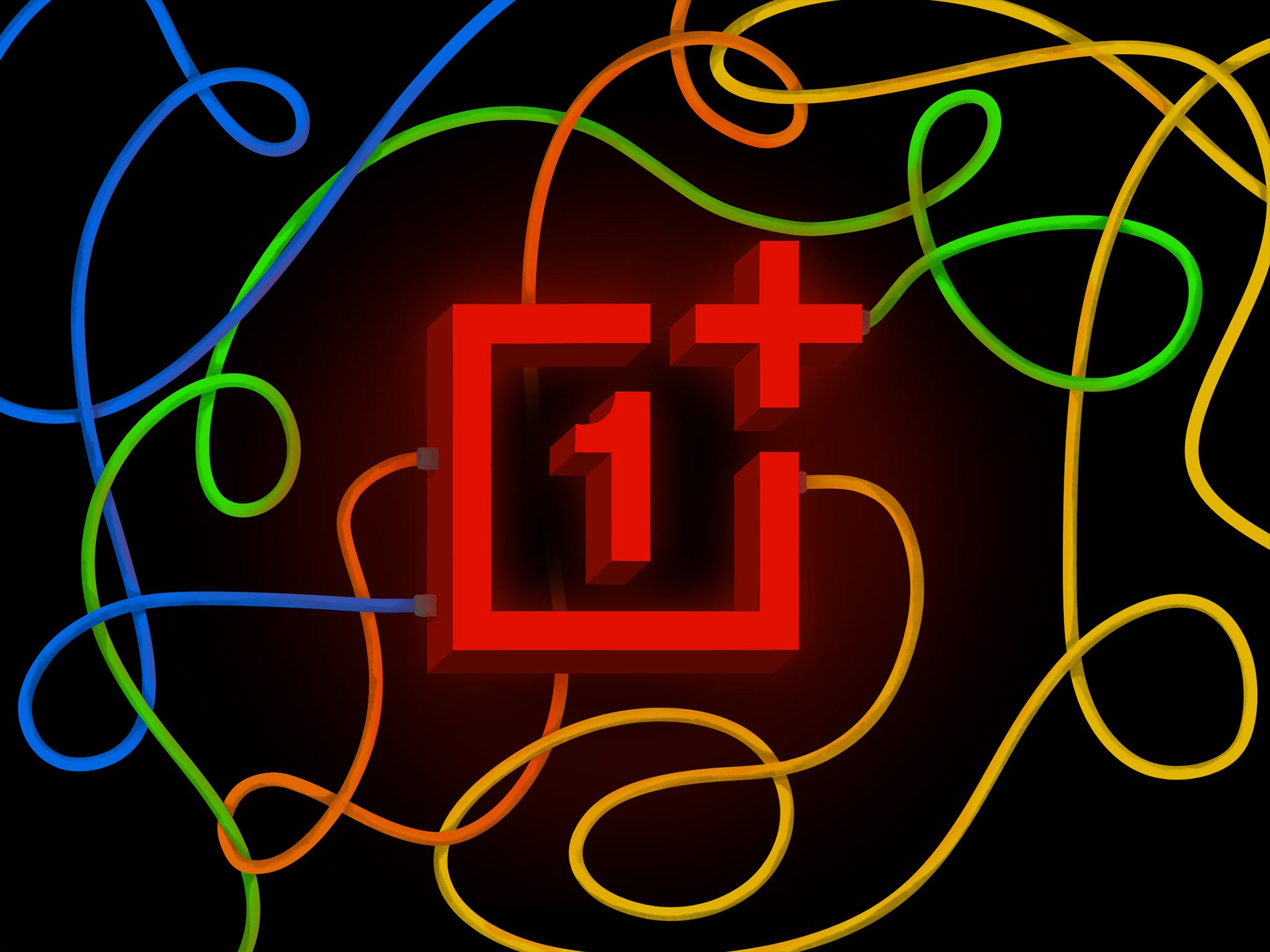
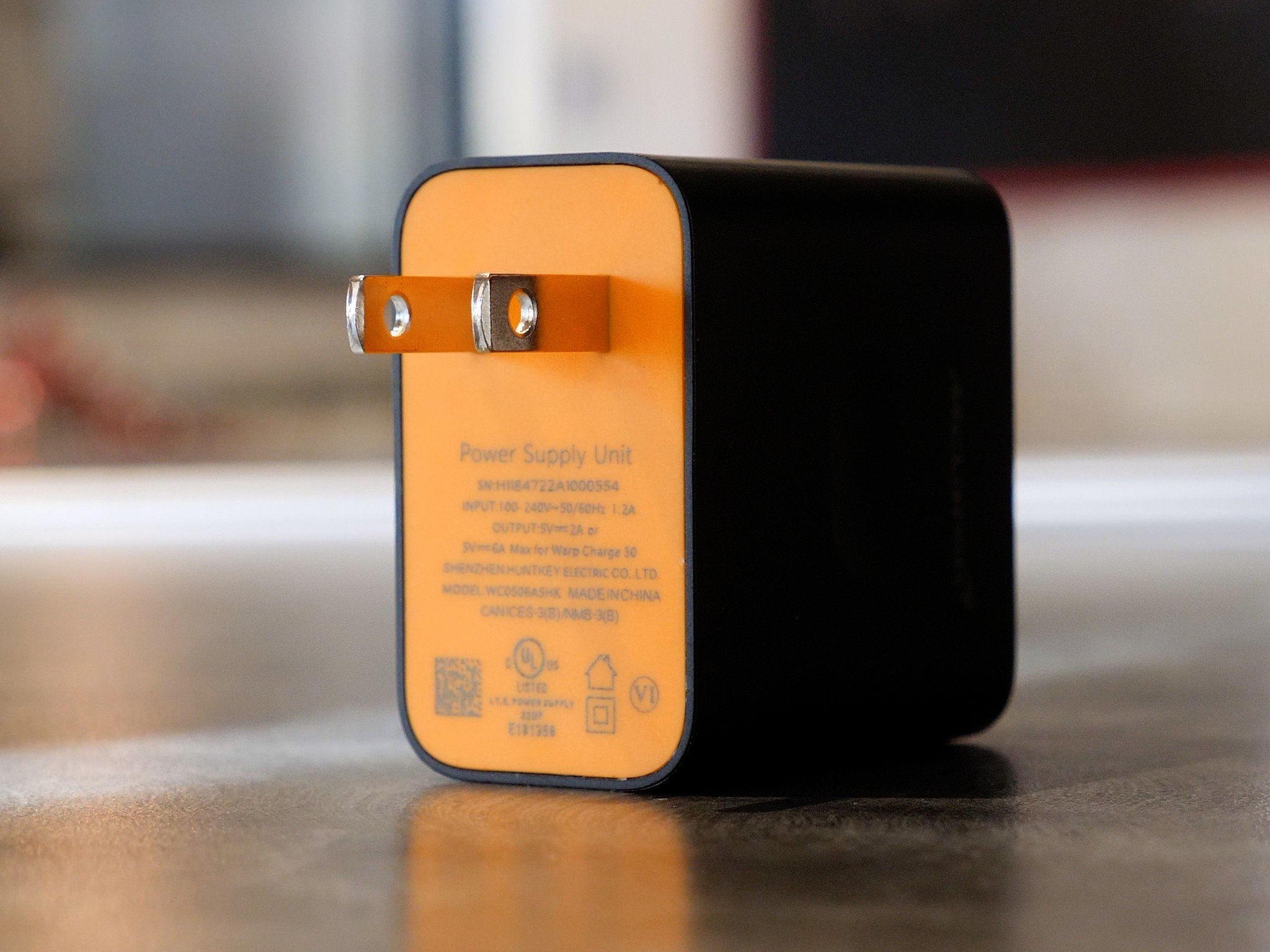
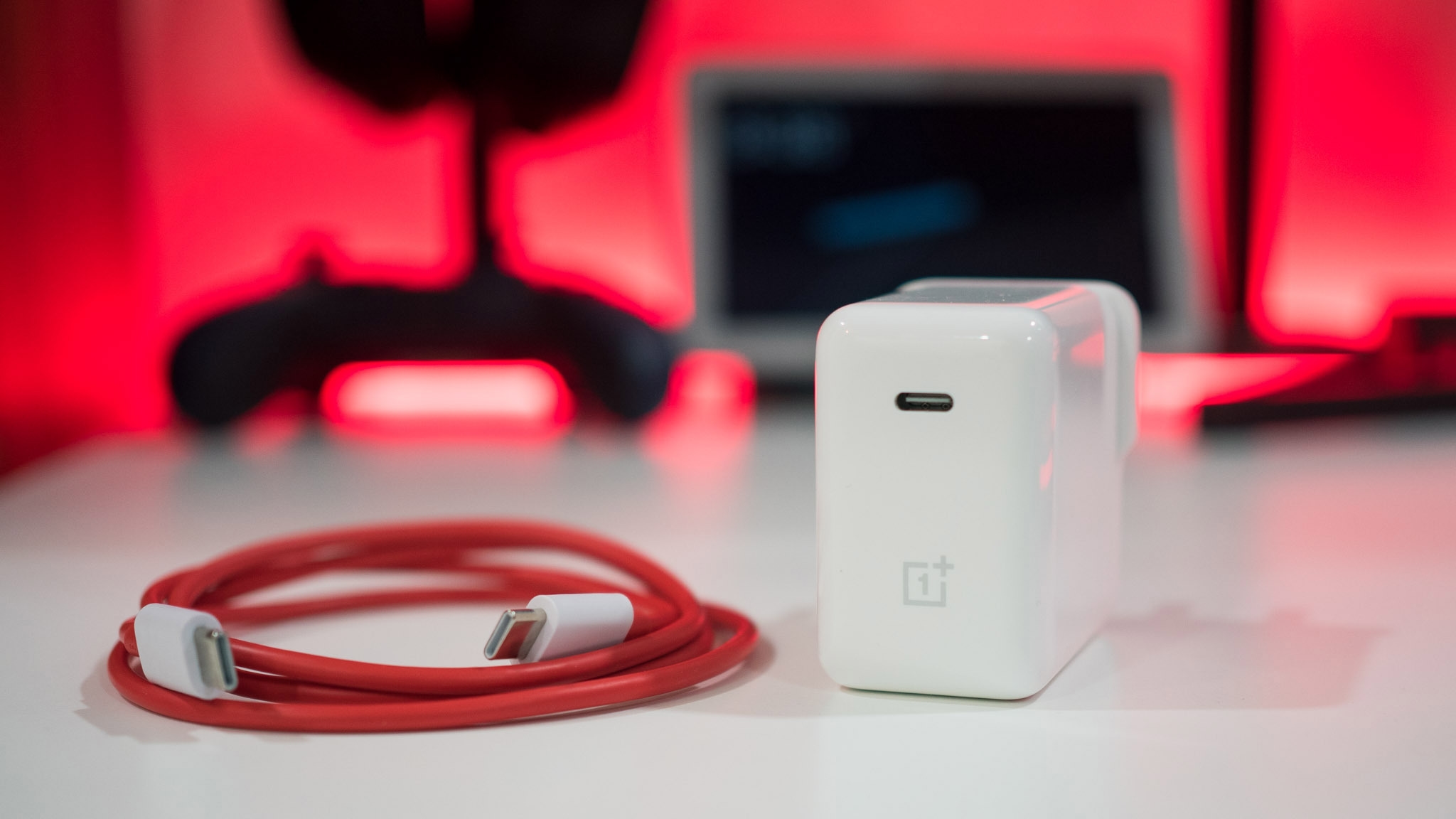
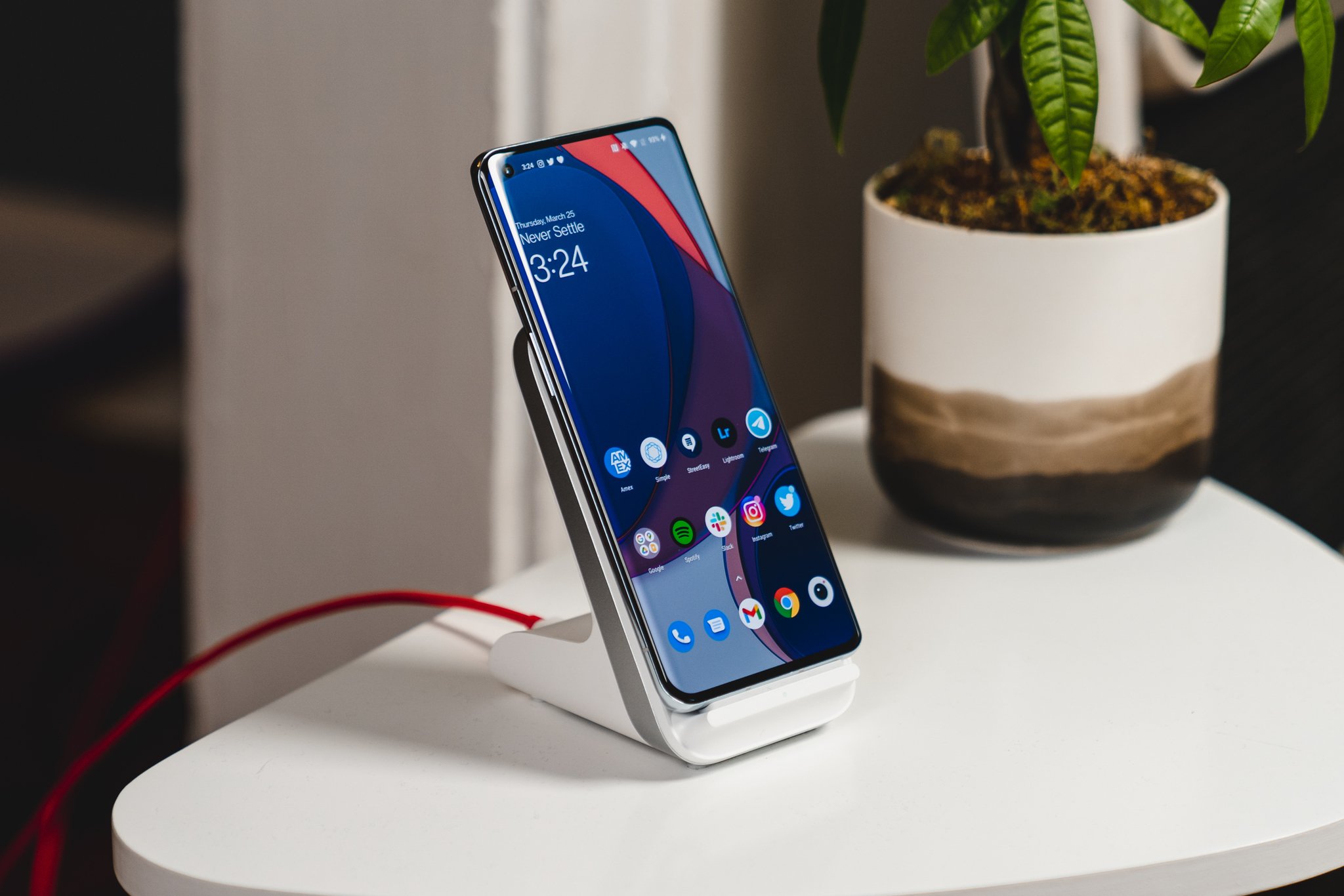
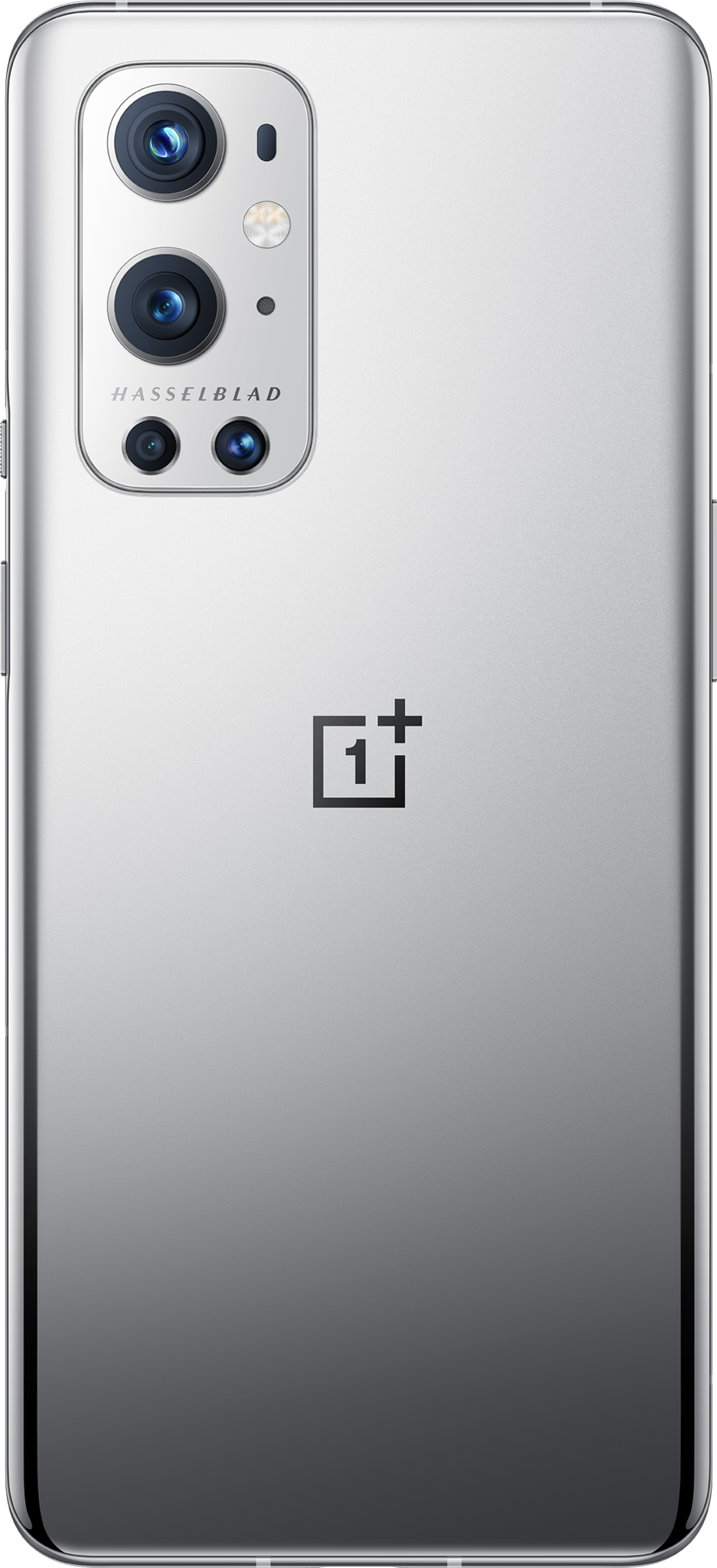
Aucun commentaire: